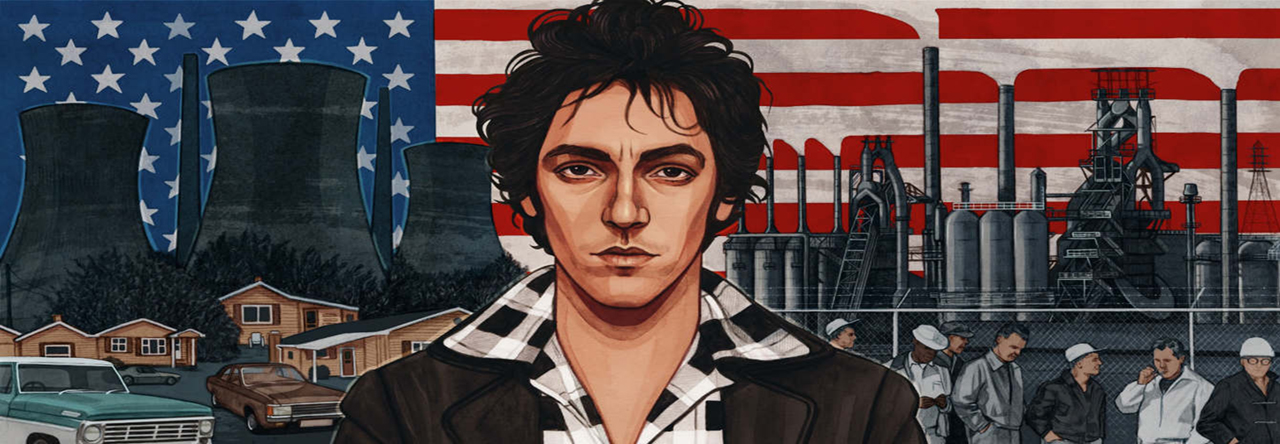When reflecting upon Springsteen’s discography, perhaps the task he succeeded in the most was creating unity among a socioeconomic class that felt largely marginalized by American politics. In the decades leading up to 1984, the American economy had begun to shift from an economy based on manufacturing towards one based on services. This shift meant that factories that had previously employed hundreds of thousands of blue-collar workers were now being off-shored to other nations, leaving an entire socioeconomic class behind. Poverty and feelings of abandonment grew exponentially among this class, and the American government did little to ease tensions. Having lacked a voice until then, a character such as Bruce Springsteen would become the perfect hero to represent those that were left behind in the American Dream. His raggedy attire, his get-it-done American attitude, and his simple musical style were the perfect combination for a working-class hero.

Bruce Springsteen live in concert in the 80’s Credit: Richard E. Aaron/Redferns/Getty
Then, when moving towards the song “Glory Days,” Springsteen masterfully splices together older styles of working-class rock with modern styles of synthesizer instrumentation in order to convey a sense of nostalgia in times of change. While the use of the guitar pays homage to the traditional roots of working-class music, the addition of the synthesizer seems to validate the technological shift in the music industry to send the message of accepting the times for how they are. Throughout the song Springsteen harkens back to simpler times through bittersweet emotion. Despite knowing that the factories will never come back to America and that times had changed for good, Springsteen still tries to get his audience to remember the glory days fondly and to avoid harboring ill feelings. It is through this method of nostalgic remembrance that Springsteen was able to vitalize a diverse population to rally behind the flag that united them: a desire for socioeconomic change.
